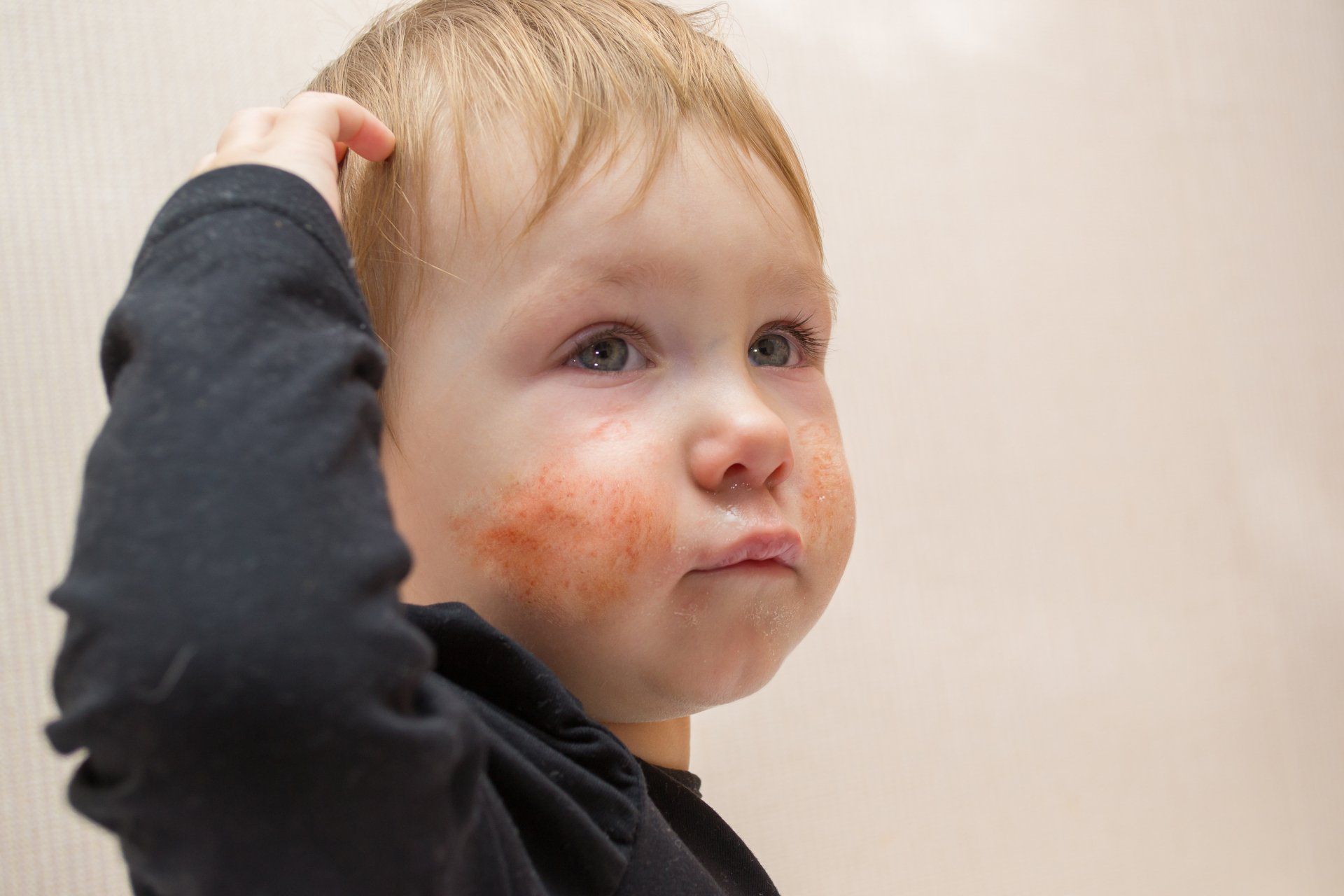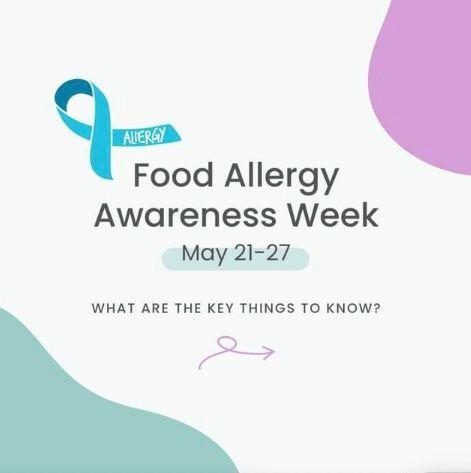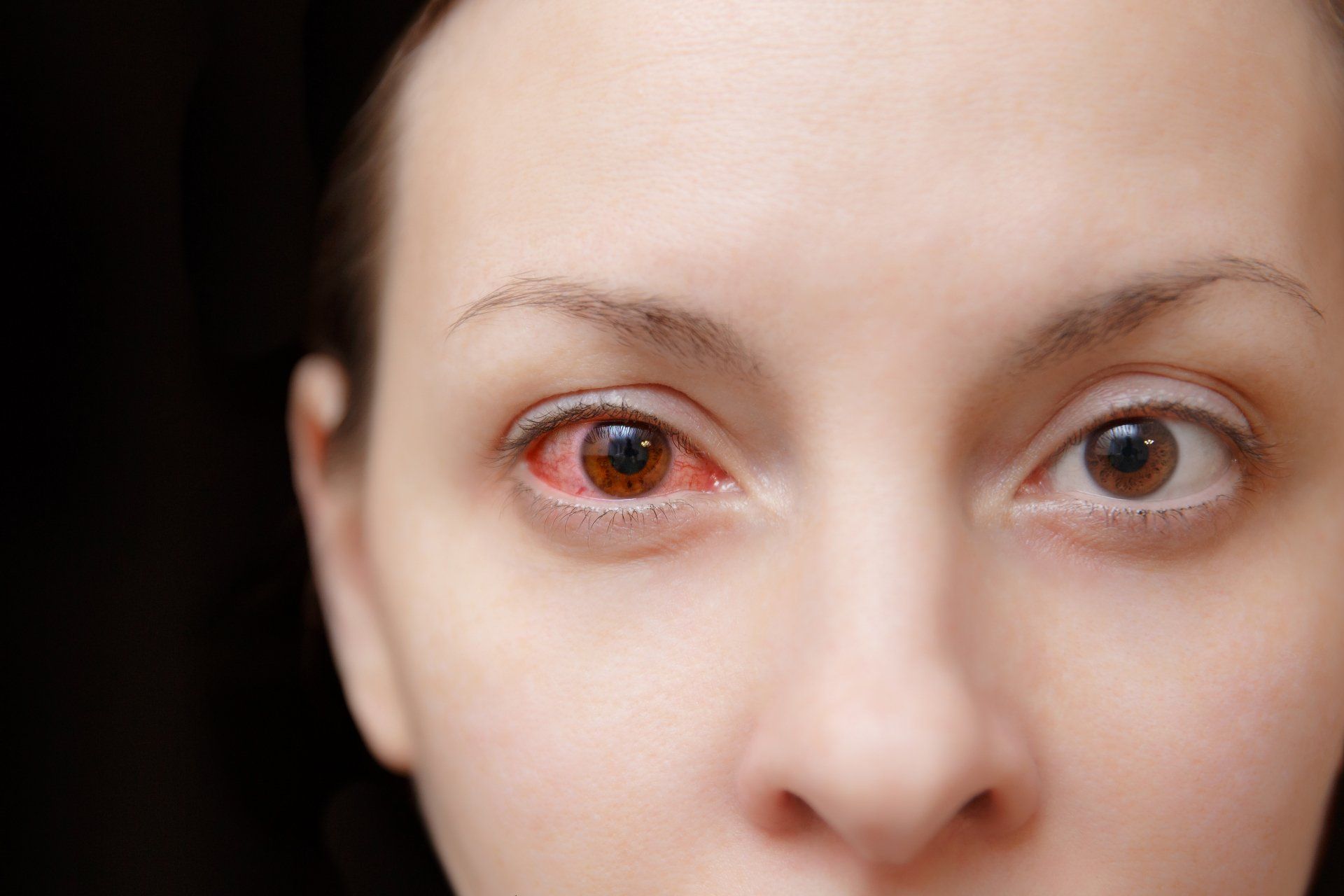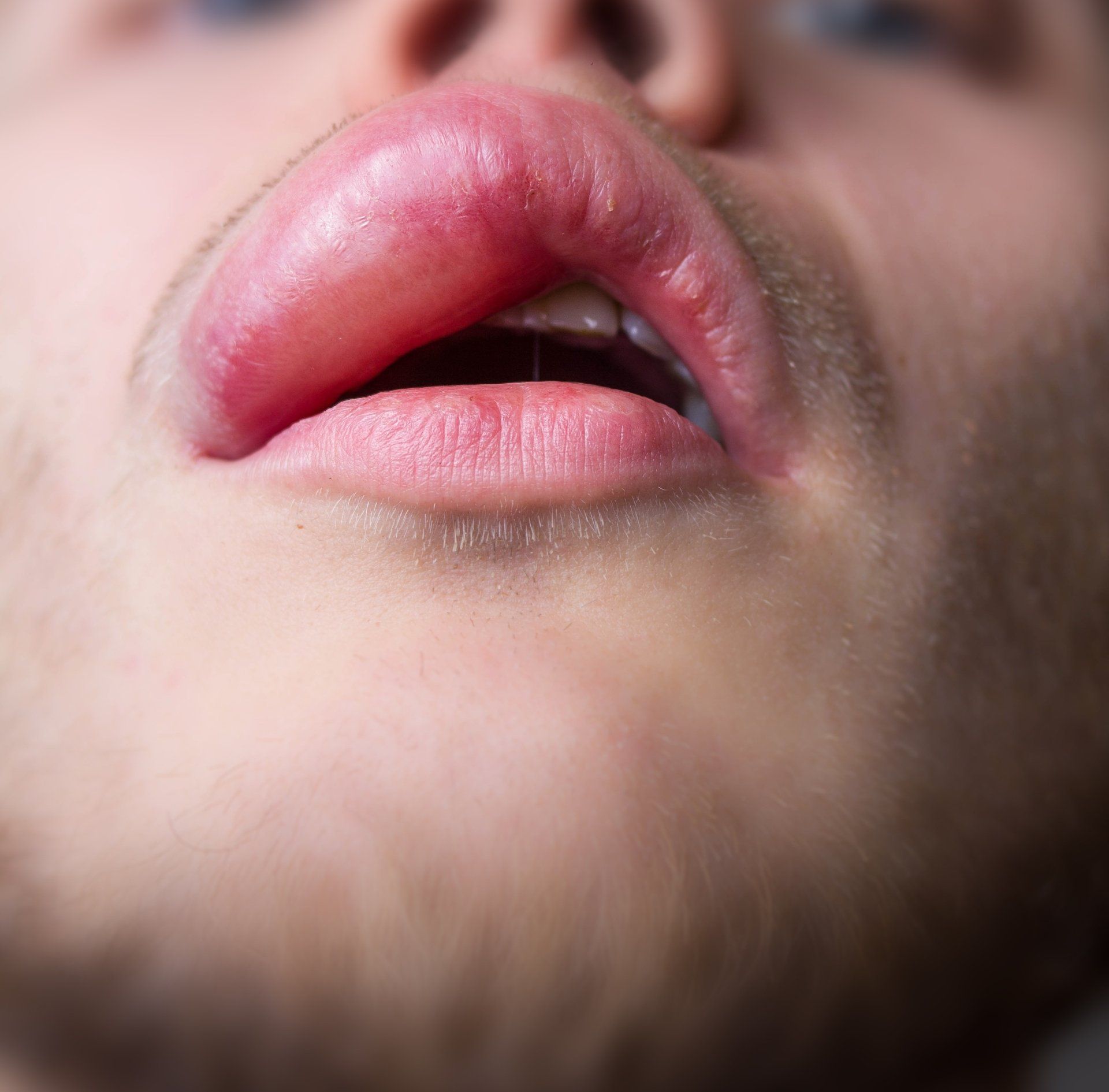Eczema (Atopic Dermatitis) - Allergy Testing Brisbane | Allergy Testing Gold Coast | Sunshine Coast

What is Eczema?
Eczema is a chronic, non-infectious, inflammatory skin condition, which affects approximately one third of the Australian population at some point in life. Eczema causes patches of the skin to become red, itchy, dry and scaly. In some cases, the skin may weep. Eczema is usually found in the creases of the elbows, behind the knees, across the ankles, and may also involve the wrists, face, ears and neck.
Who does eczema affect?
Eczema most commonly occurs in infants and young children, affecting one in five children under two years of age. Symptoms of eczema usually improve with age, however many children will continue to have a tendency for dry, sensitive skin, through to adulthood. Eczema is not frequently observed in older children and adults
What causes eczema?
The cause of eczema is not well understood. In most cases, eczema is thought to be a hereditary condition. A strong association between eczema and allergic disorders (such as asthma, hay fever and food allergies) has been identified in the literature. However it is important to understand that eczema is not an allergic reaction, so an allergy to a particular substance will not cause an individual to develop eczema.
Triggers to aggravate eczema:
- Dry skin
- Scratching
- Tight clothing
- Direct contact with grasses, carpets, sand, pet dander
- Chlorinated water
- Irritants (soaps, shampoos, cosmetics, perfumes, washing powders, fabrics)
- Inhalant allergens (pollens, mould)
- Dust mites
- Tobacco smoke
- Air-conditioning
- Temperature changes (overheating)
- Weather conditions (hot/humid or cold/dry weather)
- Food intolerances (e.g. dairy products, wheat products, eggs, seafood, artificial flavourings , colourings and preservatives)
- Alcohol
- Exercise
- Stress
Please note these are examples of potential triggers of eczema, and it is not routinely recommended individuals with eczema avoid all of these triggers without seeking the advice of a qualified health professional.
Treatment
As there currently remains no cure for eczema, the focus of eczema treatment is prevention and management of symptoms:
- Maintain and protect the skin The use of emollients is essential to keep dry skin moisturized and minimize itchiness.
- Promptly treat eczema flare-ups It is important to eczema flare-ups are treated quickly with topical steroids or calcineurin inhibitors. These medications act to reduce skin inflammation. Individuals should also continue applying emollients to keep the skin moisturised.
- Control eczema itch Eczema itchiness can be very distressing. Scratching can cause eczema to worsen and increases risk for infection. To control itchiness, individuals can apply cold compresses or wet wraps. Antihistamines are not usually very effective for eczema itch, but may sometimes help.
- Prevent and treat infection Although eczema is not infectious, it can become infected. Eczema compromises skin integrity and impairs the natural barrier function of skin against bacteria. It is important individuals keep their skin well moisturised, and refrain from scratching. Should eczema become infected, it is important it is treated promptly.
- Avoid triggers and irritants Identifying and avoiding triggers which aggravate eczema can be very helpful in preventing and/or decreasing the severity of, eczema flare-ups. Common triggers are listed above.






